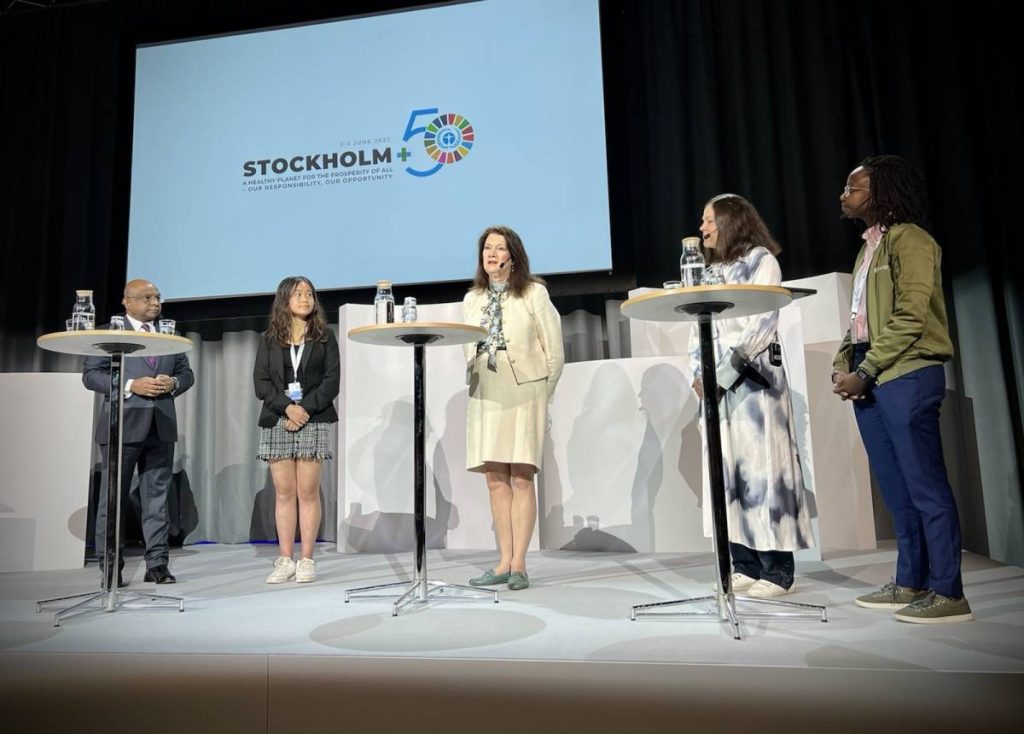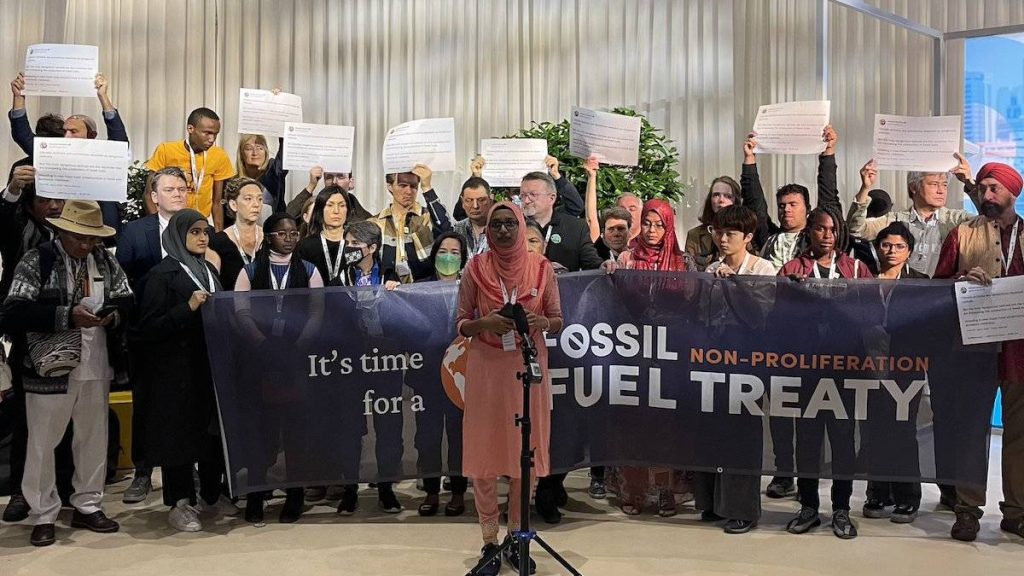Stockholm+50 featured four plenary sessions in which leaders made calls for bold environmental action to accelerate the implementation of the 2030 Agenda and the Sustainable Development Goals, reports Asian Lite News
Hundreds of speakers attending Stockholm+50 have called for “real” commitment to urgently address global environmental concerns and for a just transition to sustainable economies that work for all people.

The two-day international meeting concluded with a statement from co-hosts Sweden and Kenya, drawn from member states and stakeholders through the meeting’s plenaries and leadership dialogues.
The statement contains several recommendations for an actionable agenda, including, placing human well-being at the centre of a healthy planet and prosperity for all; recognizing and implementing the right to a clean, healthy and sustainable environment; adopting systemwide changes in the way the current economic system works, and accelerate transformations of high impact sectors among others.
“We believe that we have collectively mobilized and used the potential of this meeting. We now have a blueprint of acceleration to take further,” Sweden’s Minister for Climate and the Environment, Annika Strandhall, said in her closing remarks on Friday.
“Stockholm+50 has been a milestone on our path towards a healthy planet for all, leaving no one behind.”
Stockholm+50 featured four plenary sessions in which leaders made calls for bold environmental action to accelerate the implementation of the 2030 Agenda and the Sustainable Development Goals.
Three leadership dialogues, hundreds of side events — including several youth-led sessions — and webinars, as well as series of regional multi-stakeholder consultations in the run-up to the meeting enabled thousands of people around the world to engage in discussions and put forward their views.
“The variety of voices and bold messages that have emerged from these two days demonstrate a genuine wish to live up to the potential of this meeting and build a future for our children and grandchildren on this, our only planet,” said Keriako Tobiko, Kenya’s Cabinet Secretary for the Environment.
“We didn’t just come here to commemorate, but to build forward and better, based on the steps taken since 1972.”

“We came to Stockholm 50 years after the UN Conference on the Human Environment knowing that something must change. Knowing that if we do not change, the triple planetary crisis of climate change, nature and biodiversity loss, and pollution and waste will only accelerate,” said Inger Andersen, Secretary-General of Stockholm+50 and Executive Director of the UN Environment Programme.
“Now we must take forward this energy, this commitment to action to shape our world,” she added.
There were calls from the floor calling for a Fossil Fuel Non-Proliferation Treaty and strong calls to end the expansion of fossil fuels and, while the final text has yet to be released, it would be an important move to see those calls echoed in the closing documents.
Tzeporah Berman, Chair of the Fossil Fuel Non-Proliferation Treaty Initiative, told IANS: “For too long, fossil fuel production has become a festering wound of the climate crisis due to decades of ignoring the problem at the negotiating table.
“We have no more time for targets without action, vague net zero promises and accounting tricks while governments continue to approve more oil, gas and coal projects. The bottom line is the world’s governments still have no framework for working together to end the expansion of fossil fuel production and that’s why we need a Fossil Fuel Treaty.”
Governments around the world are still approving plans to produce twice as much oil, gas and coal than can be burned for a livable planet, taking us far off track to limit warming to 1.5 degrees Celsius.
As the UNEP Production Gap Report has consistently highlighted, failure to stop fossil fuel expansion and to plan for a global just transition for the managed phase out of fossil fuels undermines any efforts to meet Paris Agreement goals.
On the sidelines of the Stockholm+50 meeting, India and Canada have signed a Memorandum of Understanding (MoU) to establish stronger cooperation on environmental protection and climate action.

India’s Minister of Environment, Forest and Climate Change Bhupender Yadav and Canadian Minister of Environment and Climate Change Steven Guilbeault signed the MoU to increase bilateral cooperation on climate action, environmental protection and conservation.
The signing was made possible thanks to an earlier meeting between the two ministers at COP26 in 2021.
Under the MoU, both countries have agreed to collaborate, exchange information and expertise, and support the respective ambition in a wide range of areas, including increasing renewable energy capacity, decarbonizing heavy industries, reducing plastic pollution, supporting the sound management of chemicals, and ensuring sustainable consumption.
Both countries are intent on supporting each other’s climate and environmental goals by finding effective, long-term solutions that will also provide opportunities to advance economic growth and job creation.
ALSO READ: OPEC+ to boost oil production








